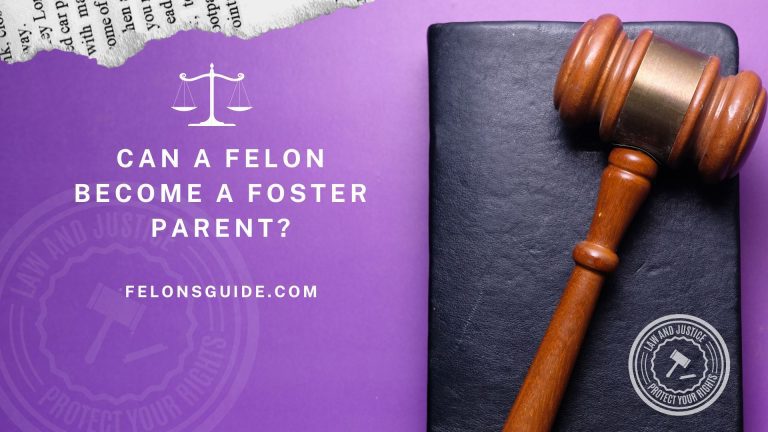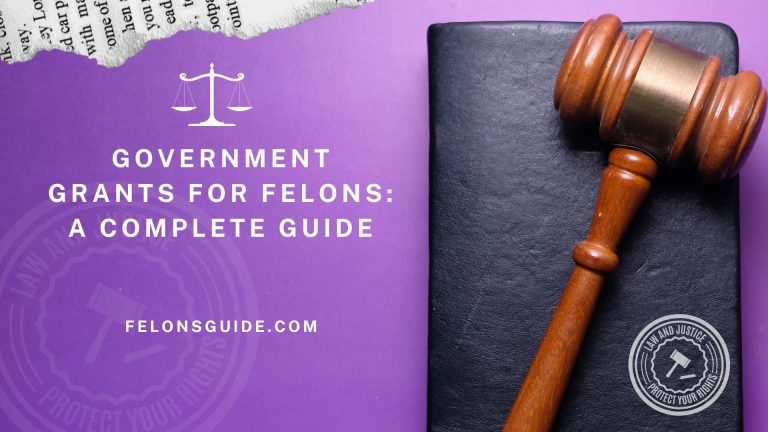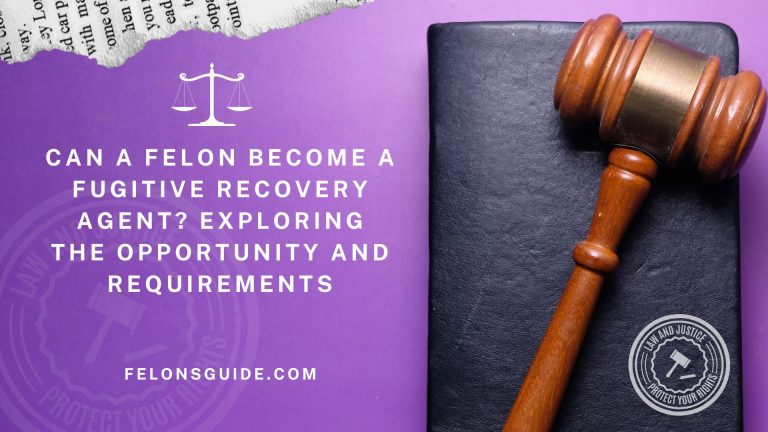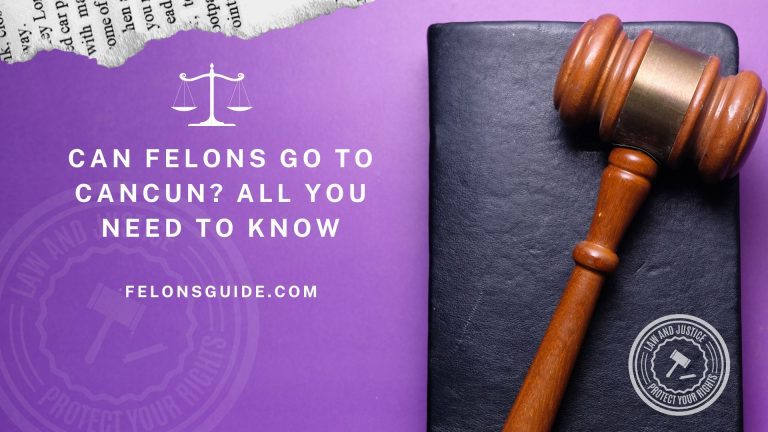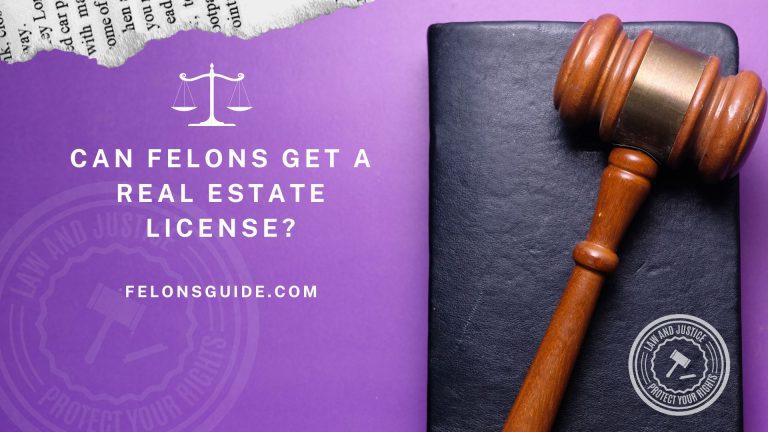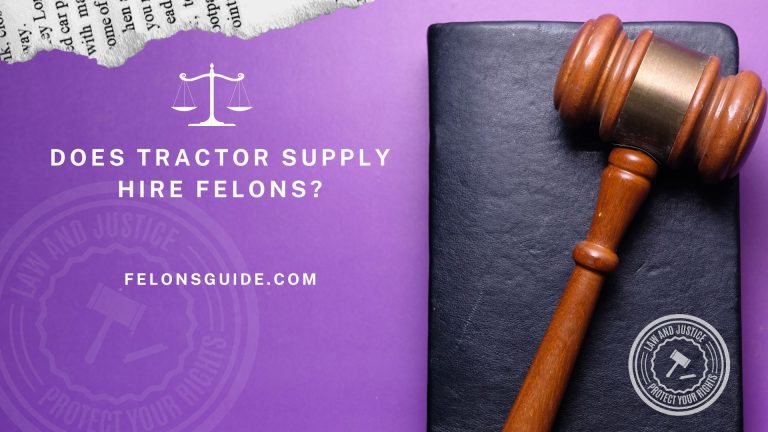Can a Felon Live with Someone on Section 8? Exploring the Rules and Regulations
Imagine being released from prison with the hope of starting a new life, only to face another hurdle: finding a place to live. For individuals with criminal records, finding affordable housing can be a daunting task. One option that may come to mind is Section 8 housing, a program that provides rental assistance to low-income families and individuals. But the question remains: can a felon live with someone on Section 8?
In this article, we will explore the rules and regulations surrounding this topic, and provide insight into the process of securing stable housing for individuals with criminal records. Join us as we delve into the complexities of navigating Section 8 housing with a criminal record.
Can a Felon Live with Someone on Section 8?
Answer: Yes, a felon can live with someone on Section 8, but there are certain rules and regulations that must be followed.
Living with someone on Section 8 is possible, but there are limitations on who can be added to the lease. Generally, a person can only add immediate family members to the lease, such as a spouse, children, or parents. However, there are exceptions that allow for non-immediate family members, such as a roommate, to be added to the lease.
For felons, the process of living with someone on Section 8 may be more complicated. Landlords and property managers may conduct background checks on all individuals who will be living in the unit, and a felony conviction could potentially impact eligibility for the program. However, HUD regulations state that a landlord cannot deny an individual from participating in the Section 8 program solely based on their criminal record.
It’s important to note that any criminal activity that occurs in the unit could potentially result in the termination of the lease for all individuals living in the unit, regardless of whether they were involved in the activity or not.
Section 8 Eligibility Criteria
In order to be eligible for the Section 8 housing program, there are several criteria that must be met. These criteria are put in place to ensure that the program is available to those who truly need it.
- Income: To be eligible for Section 8, your income must fall below a certain level. This level varies depending on your location, family size, and other factors. In general, the income limit is set at 50% of the median income in the area.
- Citizenship or Legal Status: To be eligible for Section 8, you must be a U.S. citizen or have eligible immigration status.
- Background Check: As previously mentioned, landlords and property managers may conduct a background check on all individuals who will be living in the unit. Any criminal activity could potentially impact eligibility for the program.
- Rental History: A positive rental history is important for Section 8 eligibility. This includes paying rent on time and not having any evictions on record.
- Family Size: The size of your family will be taken into consideration when determining eligibility.
- Disability Status: Individuals with disabilities may be given priority for Section 8 housing.
Living with Someone on Section 8
Living with someone who is on Section 8 can be a complex situation. While it is possible for a felon to live with someone on Section 8, there are some important factors to consider.
First and foremost, it’s important to understand the rules and regulations of the Section 8 program. Landlords and property managers are required to conduct background checks on all individuals who will be living in the unit. This includes criminal history checks, which may impact eligibility for the program. If a felony is on record, it may be more difficult for the household to qualify for Section 8 housing.
Additionally, the income of all individuals in the household will be taken into consideration when determining eligibility for Section 8. If the felon’s income is above the threshold for eligibility, it may impact the household’s ability to participate in the program.
It’s also important to consider the potential impact on the household’s rental history. If the felon has a negative rental history or eviction on record, it may impact the landlord or property manager’s willingness to participate in the program.
Another consideration is the impact on the Section 8 voucher. If the felon is living with someone who has a Section 8 voucher, their income may impact the voucher amount. This can impact the overall affordability of the unit for the household.
Overall, while it is possible for a felon to live with someone on Section 8, there are important factors to consider. It’s important to understand the rules and regulations of the program, as well as the potential impact on eligibility and rental history. Working with a housing authority or agency can help navigate the process and ensure that all requirements are met.
Also Read: Can a Felon get a CDL License: Exploring the Possibilities
The Role of Landlords and Property Managers
Landlords and property managers play a crucial role in the Section 8 program when it comes to housing felons or individuals with criminal histories. They are responsible for ensuring that all tenants in their units meet the eligibility requirements of the program.
First and foremost, landlords and property managers must conduct background checks on all individuals who will be living in the unit. This includes criminal history checks, which are required by law. If a felony or other criminal history is discovered, it may impact the tenant’s eligibility for the Section 8 program.
However, it’s important to note that a criminal history does not automatically disqualify an individual from the program. Landlords and property managers must also consider other factors, such as the severity of the offense and how long ago it occurred. They may also take into account any efforts the tenant has made to turn their life around, such as completing a rehabilitation program.
It’s also important for landlords and property managers to understand their obligations under the Fair Housing Act. This law prohibits discrimination based on factors such as race, religion, and national origin, as well as criminal history. Landlords and property managers must ensure that they are not violating the law by denying a tenant based solely on their criminal history.
Overall, landlords and property managers play an important role in the Section 8 program when it comes to housing felons or individuals with criminal histories. It’s crucial that they follow all rules and regulations of the program, including conducting background checks and avoiding discrimination. Working with a housing authority or agency can help ensure that all requirements are met and that the program is being administered fairly.
Also Read: Does Lyft Hire Felons?: Exploring Lyft’s Hiring Policies for Felons
Resources for Felons Seeking Housing
Finding suitable housing can be a challenge for felons, but there are resources available to help them navigate the process. Here are some resources for felons seeking housing:
- Reentry Programs: Many organizations offer reentry programs to help felons rejoin society and find housing. These programs often provide resources such as job training, counseling, and assistance with finding housing.
- Local Housing Authorities: Contacting local housing authorities is a good place to start for felons seeking affordable housing. These agencies may be able to offer assistance with finding suitable housing options and navigating the application process.
- Nonprofit Organizations: There are many nonprofit organizations that provide assistance to felons seeking housing. These organizations may offer temporary housing, rental assistance, or other resources to help felons find and maintain housing.
- Second Chance Programs: Some housing providers offer second chance programs that cater specifically to individuals with criminal histories. These programs may offer reduced rent, flexible lease terms, or other benefits to help felons secure housing.
- Legal Aid: If a felon believes that they have been discriminated against in their housing search due to their criminal history, they may be able to seek legal assistance. Legal aid organizations may be able to help them navigate the legal process and advocate for their rights.
What Felonies Disqualify You from Section 8 Housing?
If you’re a felon and seeking housing assistance through the Section 8 program, it’s essential to know which types of felony convictions can disqualify you.
Here are some of the felonies that may disqualify you from receiving Section 8 housing:
- Drug-related offenses: If you have been convicted of manufacturing, distributing, or possessing drugs, you may be ineligible for Section 8 housing assistance.
- Violent crimes: Felony convictions for crimes like murder, assault, battery, and domestic violence can disqualify you from the Section 8 program.
- Property crimes: If you have been convicted of a property crime like burglary, theft, or robbery, you may be ineligible for Section 8 housing.
- Sex crimes: Felony convictions for sex crimes like rape, sexual assault, and child pornography can disqualify you from Section 8 housing assistance.
- Fraud: If you have been convicted of fraud, including identity theft or financial crimes, you may not be eligible for Section 8 housing.
It’s important to note that each Section 8 program has its own specific guidelines and criteria for determining eligibility, and some offenses may disqualify you in some areas but not in others. Additionally, the severity and recency of the conviction can also impact your eligibility.
